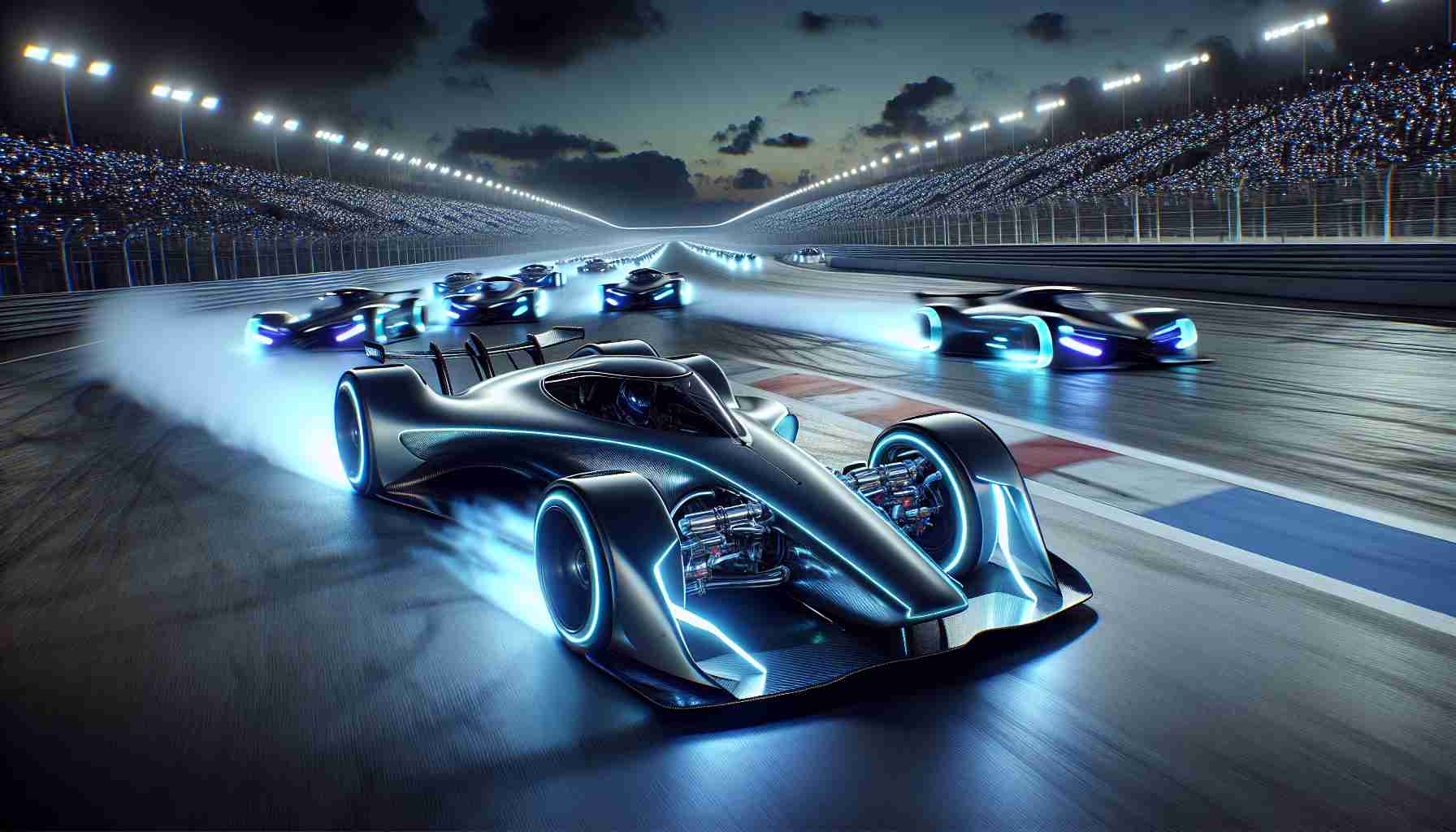The Alpenglow Project Takes Center Stage
PHINIA has made waves in the automotive industry by forging two key partnerships with Alpine. This collaboration is focused on advancing the Alpenglow, a groundbreaking hydrogen-powered prototype aimed at transforming performance in motorsports.
The Alpenglow project includes the innovative DI-CHG direct hydrogen injectors that PHINIA has developed, designed specifically for high-performance engines utilizing hydrogen and compressed natural gas. The 6-cylinder Alpenglow Hy6 made a striking debut at the recent Paris Motor Show, showcasing its advanced technology after the prior demonstration of its 4-cylinder variant at the Total Energies 6 Hours of Spa-Francorchamps.
With the 24 Hours of Le Mans as a testing ground, its capabilities were further highlighted, signaling a promising shift towards eco-friendly racing solutions. In addition to the Alpenglow project, PHINIA is also extending its collaboration with the BWT Alpine Formula 1 Team. This enhanced partnership, now under the Delphi brand banner, will allow for greater brand visibility through logo placements on Formula 1 single-seaters and various commercial assets throughout the racetrack circuit.
As this innovative partnership unfolds, the realm of motorsport is set for dramatic changes, embracing a sustainable future powered by hydrogen technology. Keep an eye on PHINIA and Alpine as they aim for the finish line with groundbreaking solutions!
The Broader Impact of Hydrogen Innovation in Motorsports
The Alpenglow Project is more than just a technological marvel; it signifies a pivotal moment that could shape the future of both the automotive and motorsport industries. As climate change accelerates, the global push toward sustainability is driving solid momentum behind emissions reduction strategies. Hydrogen vehicles, powered by clean fuel, present an attractive alternative to traditional fossil fuels, potentially reducing the carbon footprint of racing significantly.
The implications extend to society and culture as well, as successful integration of hydrogen technology in high-profile settings like Formula 1 can catalyze broader acceptance among consumers. With sustainability now a cornerstone of modern corporate strategy, companies like PHINIA are pioneering advancements that may recalibrate public perceptions around performance vehicles, marrying efficiency with excitement.
Additionally, this shift could foster an expanded global economy of green technology. As motorsport enthusiasts embrace new innovations, demand for hydrogen infrastructure—such as refueling stations and production technologies—can be expected to rise, thus attracting investment and creating jobs. The race towards commercial hydrogen adoption has the potential not just to redefine racing, but to illuminate pathways for urban mobility solutions globally.
Moreover, if established successfully, the hydrogen model from motorsports could pave the way for applications across other industries, from shipping to aviation. As stakeholders look to shape the long-term significance of this technology, its environmental effects could prove transformative, leading us toward a cleaner and more sustainable future.
The Future of Motorsports: How Hydrogen Technology is Changing the Game
Introduction to the Alpenglow Project
The Alpenglow Project, a joint effort between PHINIA and Alpine, is making headlines for its pioneering approach to sustainable performance in the motorsports industry. The initiative is characterized by the integration of hydrogen power into high-performance vehicle designs, aiming to reduce the carbon footprint typically associated with racing.
Key Innovations and Features
At the heart of the Alpenglow project are the DI-CHG direct hydrogen injectors developed by PHINIA. These injectors are crucial for optimizing combustion in both hydrogen and compressed natural gas engines, providing significant advantages in terms of efficiency and power output. The project features the Alpenglow Hy6, a 6-cylinder prototype that recently garnered attention at the Paris Motor Show. Its earlier variant, a 4-cylinder model, was showcased at the Total Energies 6 Hours of Spa-Francorchamps, emphasizing PHINIA’s commitment to innovation and performance.
Testing and Future Aspirations
The 24 Hours of Le Mans is set to be a pivotal event for further testing the Alpenglow’s capabilities. This historic race provides an ideal environment for evaluating the performance of hydrogen technology in extreme conditions, supporting the global shift towards more environmentally friendly racing solutions.
Strategic Partnerships
PHINIA’s collaboration with the BWT Alpine Formula 1 Team is another critical aspect of this initiative. Under the Delphi brand, this partnership enhances brand visibility through prominent logo placements on the team’s single-seaters. It allows both companies to leverage the high-profile nature of Formula 1 racing to promote their commitment to sustainability and performance.
Pros and Cons of Hydrogen in Motorsports
Pros:
– Environmental Benefits: Hydrogen technology offers a cleaner alternative, significantly reducing emissions associated with traditional motorsport engines.
– Performance Potential: The development of high-performance hydrogen engines could revolutionize speed and efficiency in racing.
Cons:
– Infrastructure Challenges: The availability of hydrogen refueling stations is still limited, which may pose challenges during races.
– Cost of Development: The R&D required for developing advanced hydrogen technology can be significant, impacting overall budgets for teams.
Trends and Market Analysis
As the world increasingly prioritizes sustainability, the motorsport industry is at a crossroads. The success of the Alpenglow project could set a precedent for other racing teams to explore alternative fuels. Furthermore, with global automotive trends shifting towards electrification and sustainable practices, hydrogen racing could become more mainstream.
Security and Sustainability Aspects
The incorporation of hydrogen technology in motorsports is not just about performance; it also raises important questions regarding safety and sustainability. Ensuring that hydrogen systems are safe under racing conditions is critical, and ongoing research is aimed at addressing these potential risks. Additionally, sustainable practices in logistics and resource management are becoming integral to racing strategies.
Conclusion and Predictions
The Alpenglow project stands at the forefront of an exciting transition in motorsports. As PHINIA and Alpine continue to innovate, the racing landscape could witness a broader adoption of hydrogen technology, potentially reshaping the future of competitive racing. Enthusiasts and industry stakeholders alike are keenly watching how these developments will unfold.
For more insights on advancements in automotive technologies, visit the PHINIA website for updates and innovations.


